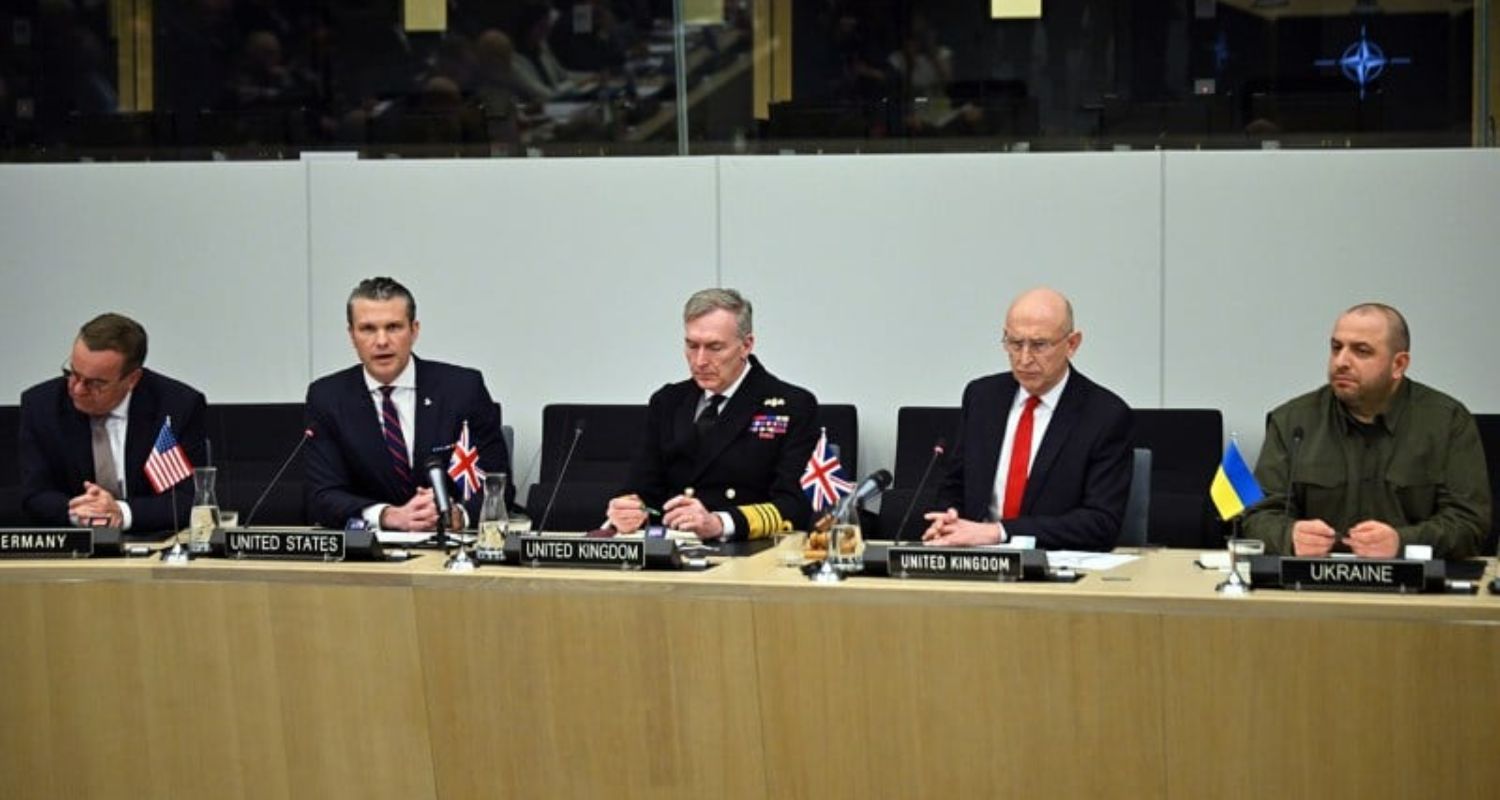The United States’ decision to withdraw its role as a guarantor of European security under President Donald Trump’s leadership is raising deep concerns about the future of NATO and the transatlantic alliance.
As Trump appears to align more closely with Russia in its ongoing war against Ukraine, European nations may soon find themselves navigating security challenges without traditional U.S. support.
During his first official visit to NATO headquarters in Brussels this week, U.S. Defense Secretary Pete Hegseth made a striking announcement: “The United States would no longer serve as a guarantor of European security.” The statement served as a stark warning to EU leaders, reinforcing fears that Washington may distance itself from its NATO commitments.

Meanwhile, President Trump held a lengthy phone conversation with Russian President Vladimir Putin, during which both leaders reportedly agreed to “work closely” to negotiate an end to the war in Ukraine. The conflict, now in its third year, has resulted in the deaths of tens of thousands, with Russian casualties consisting largely of soldiers, while Ukrainian civilian losses remain high.
Trump described his call with Putin as a step toward peace, stating that they spoke for an hour and a half and agreed to initiate discussions regarding Ukraine’s future. However, Ukrainian President Volodymyr Zelensky swiftly rejected any talks that exclude Ukraine from the negotiation table.
“We cannot accept, as an independent country, that any agreements be made without us,” Zelensky asserted on Thursday. “It is important to ensure that everything does not go according to Putin’s plan.”
Also Read: US-designed reactors to be built in India, tech transfer on
Former U.S. Ambassador to NATO Ivo Daalder sharply criticised Trump’s approach, comparing it to the appeasement policies of British Prime Minister Neville Chamberlain before World War II. “Trump is trying to end the war at any cost—not unlike Chamberlain,” Daalder said, referencing Chamberlain’s widely condemned concessions to Hitler.
NATO allies echoed concerns about the implications of Trump’s stance. “Ukraine’s voice must be at the heart of any talks,” said UK Defence Secretary John Healey at the NATO meeting in Brussels, where defense ministers from all 32 NATO member states, including Hegseth, convened to discuss the war in Ukraine.
In Moscow, Russian officials celebrated what they viewed as a significant victory. Russian media reports suggested that Trump’s shift signaled a major blow to Ukrainian President Zelensky and the European Union.
Also Read: PM Modi, Prez Trump meet, announce ambitious defence, energy plans
“The U.S. has finally dealt Zelensky a real blow,” one Russian report stated, adding that Trump’s approach dismantles the long-held Western principle of ‘nothing about Ukraine without Ukraine.’ “Trump has effectively signed Zelensky’s political death sentence,” the report continued.
Daalder, now the president of the Chicago Council on Global Affairs, described the situation as a major shift in global security. “After 76 years, the U.S. is no longer a reliable partner,” he warned.
He further emphasized that Putin would see the U.S. withdrawal from European security as a victory. “This has been the goal of the Soviet Union and now Putin’s Russia since 1949—to weaken NATO and reduce U.S. influence in Europe,” Daalder said.
As tensions rise, NATO allies now face an urgent question: how to ensure European security in the absence of U.S. guarantees. With Trump signaling a new direction in U.S. foreign policy, European leaders may soon be forced to develop independent defense strategies to counter growing Russian aggression.
Also Read: PM Modi is a much 'tougher' negotiator than me, says President Trump


